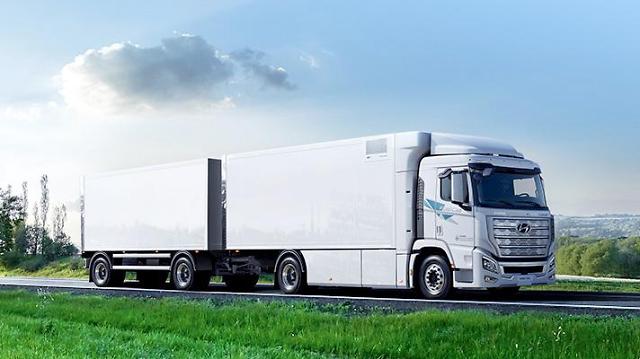–
–
–
–
–>
The government is preparing an implementation plan according to President Moon Jae-in’s declaration of ‘2050 carbon neutrality’ in October last year. However, it is pointed out that in the actual field, the policy does not support the business conditions. Carbon neutral means that the amount of carbon emitted and the amount of carbon absorbed/removed equal to each other, thereby making the actual amount of carbon emission zero.
According to industry sources on the 3rd, businessmen conveyed their opinion that the government’s meticulous support measures are desperate for the’Industry and Environmental Policy Conference’ held on the theme of the Ministry of Environment at the Grand Intercontinental Hotel in Gangnam-gu, Seoul on the 26th of last month.
Companies especially requested to improve an environment where it is difficult to actually use and expand even if they conduct R&D at the corporate level.
Hyundai Motor Company President Gong Young-woon said, “With regard to the internal combustion engine fade-out, we are also entering the market for passenger cars, and they are moving fast,” he said, saying, “But we are concerned about commercial vehicles.”
He said, “Because the owners of commercial vehicles use a lot of used cars, the old vehicles will be used again unless the operating conditions of the actual owners are provided,” he said. “Please take a look so that market demand can go together.”
It is argued that expansion of eco-friendly commercial vehicles is essential for carbon neutrality. This is because medium and large commercial vehicles such as buses and cargo trucks account for 22% of greenhouse gas emissions in the transportation sector. However, it is explained that in the domestic market, where most of them are active as private businesses, the government’s policies and old car policies must go along with supply.
President Gong also mentioned that there is a need for policy support to ensure that companies are carbon-neutral in their operations. He said, “Hyundai Motors has more than 30 factories around the world, and when comparing whether it can be used by country in relation to RE100, Korea was almost in the last place,” he said. “There is no new renewable energy and green energy enough to run the factory,” he said. .
RE100 is a global campaign to procure all energy required for business activities from renewable energy with the goal of 2050. As it spreads among global companies and demands participation from partners, it is considered an essential matter for eco-friendly management by domestic companies as well.
President Gong continued, “There is a need to quickly supply green energy necessary for RE100, and eventually green hydrogen,” he said. “Korea has secured a large number of technologies, but it is an ecosystem that can be (progressed) through policy support and various industries mingled together. It needs to be built,” he emphasized.
The airline industry also argued that it is urgent to prepare a system by the government in order to achieve a sustainable fuel conversion and to meet the global trend. The global aviation industry is accelerating the development of eco-friendly fuels such as biofuels to reduce carbon emissions.
In this regard, President of Korean Air Ki-hong Woo said, “In Korea, the contents related to biofuels are in a wasteland state,” and “the legal system does not calculate what will happen if biofuels are used, so it is necessary to have this (standard).” He said, “If you use biofuel, refiners and others will also make it, so there should be incentives,” he said. “It cannot be achieved by airlines alone.”
Meanwhile, the government announced the ‘2021 Carbon Neutral Implementation Plan’ and decided to confirm multiple scenarios for the realization of Korea’s carbon neutrality by 2050 through a national debate by June.
Hyundai Motor’s Exient Hydrogen Electric Truck. [사진=현대자동차 제공]
–
–
– .


